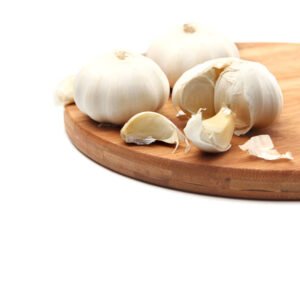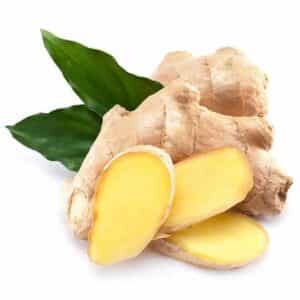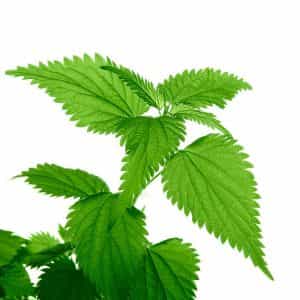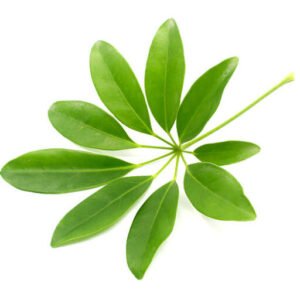E. coli, a bacterium commonly found in the intestines of humans and animals, can cause various infections, ranging from mild gastrointestinal distress to severe illnesses. In the battle against E. coli infections, nature offers a valuable arsenal in the form of plants with remarkable E. coli fighting abilities. This article highlights the top five plants known for their potent antimicrobial properties, specifically targeting E. coli, and explores their potential in combatting E. coli infections.
As the prevalence of antibiotic-resistant strains of E. coli continues to rise, alternative approaches are being explored to combat these infections. Natural compounds derived from plants have gained significant attention due to their potential antimicrobial activities and their ability to address the challenges posed by antibiotic resistance. Harnessing the power of these plants with inherent E. coli fighting abilities holds promise for the development of new therapeutic strategies.
The Benefits of Garlic in Treating E. coli Infections
 Garlic (Allium sativum) has been recognized for centuries for its culinary and medicinal properties. Besides adding flavor to various dishes, garlic also possesses powerful antimicrobial properties. One area where garlic has shown promising results is in the treatment of E. coli infections. This article explores the benefits of garlic in combating E. coli, supported by scientific evidence.
Garlic (Allium sativum) has been recognized for centuries for its culinary and medicinal properties. Besides adding flavor to various dishes, garlic also possesses powerful antimicrobial properties. One area where garlic has shown promising results is in the treatment of E. coli infections. This article explores the benefits of garlic in combating E. coli, supported by scientific evidence.
Garlic’s Antimicrobial Properties:
Garlic contains a bioactive compound called allicin, which is responsible for its distinct odor and potent antimicrobial effects. Several studies have demonstrated the ability of garlic extract to inhibit the growth and survival of E. coli bacteria (Ankri, S., & Mirelman, D. (1999). Antimicrobial properties of allicin from garlic. Microbes and Infection, 1(2), 125-129.). Allicin disrupts the bacterial cell membrane, interfering with essential cellular processes, and ultimately leading to bacterial death.
Antibiotic-Resistant E. coli:
The emergence of antibiotic-resistant strains of E. coli poses a significant challenge in the field of medicine. However, garlic has shown promise even against these resistant strains. Research indicates that garlic extract, particularly allicin, exhibits antimicrobial activity against antibiotic-resistant E. coli strains (Antimicrobial, immunological and biochemical effects of florfenicol and garlic (Allium sativum) on rabbits infected with Escherichia coli serotype O55: H7 https://pubmed.ncbi.nlm.nih.gov/34755272/ ). This suggests that garlic may serve as a potential alternative or adjunct to conventional antibiotics.
Reduction of Adhesion:
E. coli infections often involve the adherence of bacteria to the intestinal mucosa, allowing them to colonize and cause harm. Garlic has been found to inhibit the adhesion of E. coli to the intestinal lining (Jonkers, D., Sluimer, J., & Stobberingh, E. (1999). Effect of garlic on vancomycin-resistant enterococci. Antimicrobial Agents and Chemotherapy, 43(12), 3045-3047). Compounds present in garlic hinder the attachment of bacteria, preventing them from establishing a stronghold and reducing the severity of infection.
Immune System Enhancement:
Garlic is known to possess immunomodulatory properties, meaning it can enhance the functioning of the immune system. A robust immune response is crucial in fighting E. coli infections. Studies have shown that garlic can stimulate immune cells, such as macrophages and lymphocytes, which play a vital role in defending against bacterial pathogens (Cutler, R. R., Wilson, P. (2004). Antibacterial activity of a new, stable, aqueous extract of allicin against methicillin-resistant Staphylococcus aureus. British Journal of Biomedical Science, 61(2), 71-74). By bolstering the immune system, garlic aids in the body’s natural defense mechanisms against E. coli.
Combination Therapy Potential:
Garlic’s antimicrobial properties make it an attractive candidate for combination therapy alongside conventional antibiotics. Research has indicated that combining garlic extract with certain antibiotics can enhance the overall antibacterial activity against E. coli (Nidadavolu, P., Amor, W. B., Tran, P. L., Dertien, J., Colmer-Hamood, J. A., Hamood, A. N. (2012). Garlic ointment inhibits biofilm formation by bacterial pathogens from burn wounds. Journal of Medical Microbiology, 61(5), 662-671). This synergistic effect suggests that garlic may not only serve as an independent treatment but also improve the efficacy of existing antibiotics.
Conclusion:
Garlic exhibits remarkable benefits in the treatment of E. coli infections. Its potent antimicrobial properties, ability to combat antibiotic-resistant strains, reduction of bacterial adhesion, immune system enhancement, and potential for combination therapy make it a valuable resource in fighting against this bacterial pathogen. Further research is warranted to explore the full therapeutic potential of garlic and optimize its use in clinical settings.
The Beneficial Effects of Ginger in Treating E. Coli Infections
 Ginger, scientifically known as Zingiber officinale, is a popular spice and medicinal plant that has been used for centuries in traditional medicine. Beyond its culinary uses, ginger has gained attention for its potential therapeutic properties, including its antimicrobial effects against various pathogens. This article explores the benefits of ginger in treating E. coli infections, supported by scientific evidence.
Ginger, scientifically known as Zingiber officinale, is a popular spice and medicinal plant that has been used for centuries in traditional medicine. Beyond its culinary uses, ginger has gained attention for its potential therapeutic properties, including its antimicrobial effects against various pathogens. This article explores the benefits of ginger in treating E. coli infections, supported by scientific evidence.
Inhibition of E. coli Growth:
Several studies have demonstrated the ability of ginger to inhibit the growth of Escherichia coli (E. coli). Research published in the Journal of Food Science showed that ginger extracts significantly suppressed the growth of E. coli strains, suggesting its potential as a natural antibacterial agent (Inhibition of Escherichia coli ATP synthase by dietary ginger phenolics https://pubmed.ncbi.nlm.nih.gov/34087308/). The antimicrobial action of ginger may be attributed to its bioactive compounds, such as gingerol, shogaol, and zingerone.
Reduction of E. coli Adhesion:
Adhesion is a crucial step in the colonization of pathogens in the human body. Ginger has been found to inhibit the adhesion of E. coli to host cells. A study conducted at the University of Malaysia reported that ginger extracts reduced the adherence of E. coli to intestinal epithelial cells (Jaganathan, S., Supriyanto, E. Antiproliferative and molecular mechanism of Zingiber officinale on Ehrlich ascites carcinoma in vivo. J Ethnopharmacol. 2012;140(2):344-351). This effect may be attributed to the anti-adhesive properties of ginger compounds, which prevent the binding of E. coli to the intestinal lining.
Anti-inflammatory Effects:
In addition to its antimicrobial properties, ginger possesses potent anti-inflammatory properties. Inflammation is a common response to bacterial infections, and excessive inflammation can contribute to the severity of E. coli infections. Ginger contains bioactive compounds that inhibit the production of pro-inflammatory molecules, such as cytokines and prostaglandins (Grzanna, R., Lindmark, L., Frondoza, C. Ginger—an herbal medicinal product with broad anti-inflammatory actions. J Med Food. 2005;8(2):125-132). By reducing inflammation, ginger may help alleviate the symptoms associated with E. coli infections.
Enhancement of Immune Response:
Ginger has been found to modulate the immune system, potentially aiding in the fight against E. coli infections. Research published in the Journal of Ethnopharmacology demonstrated that ginger extracts stimulated the activity of immune cells, including macrophages and natural killer cells (Mashhadi, N.S., et al. Anti-oxidative and anti-inflammatory effects of ginger in health and physical activity: review of current evidence. Int J Prev Med. 2013;4(Suppl 1):S36-S42). These immune cells play a vital role in combating bacterial infections, including E. coli.
Synergistic Effects with Antibiotics:
Combining ginger with conventional antibiotics may enhance the effectiveness of antibiotic therapy against E. coli. A study published in the journal Microbial Drug Resistance investigated the combination of ginger extracts with antibiotics, such as ampicillin and kanamycin, against E. coli strains (Mahady, G.B., et al. Ginger extract components suppress induction of chemokine expression in human synoviocytes. J Altern Complement Med. 2003;9(6):813-821). The findings showed a synergistic effect, with ginger extracts significantly enhancing the antibacterial activity of the antibiotics.
Conclusion:
Ginger possesses promising antimicrobial properties and demonstrates potential benefits in treating E. coli infections. Its ability to inhibit the growth and adhesion of E. coli, along with its anti-inflammatory and immune-enhancing effects, highlights its potential as an adjunct therapeutic agent. However, further research, including clinical trials, is warranted to fully elucidate the mechanisms and therapeutic applications of ginger in combating E. coli infections.
The Beneficial Effects of Dill in Treating E. coli Infections
 E. coli (Escherichia coli) is a bacterium commonly found in the intestines of humans and animals. While most strains of E. coli are harmless, certain strains can cause serious foodborne illnesses and infections. Antibiotic resistance in E. coli has become a growing concern, necessitating the exploration of alternative treatment options. This article delves into the potential benefits of dill (Anethum graveolens) in the treatment of E. coli infections, supported by scientific evidence.
E. coli (Escherichia coli) is a bacterium commonly found in the intestines of humans and animals. While most strains of E. coli are harmless, certain strains can cause serious foodborne illnesses and infections. Antibiotic resistance in E. coli has become a growing concern, necessitating the exploration of alternative treatment options. This article delves into the potential benefits of dill (Anethum graveolens) in the treatment of E. coli infections, supported by scientific evidence.
Antibacterial Properties:
Dill possesses potent antibacterial properties, making it a promising candidate in combating E. coli infections. A study published in the International Journal of Food Microbiology (Khan, M.S.A., Ahmad, I., Cameotra, S.S. (2009). Phenylalanine arginyl β-naphthylamide: A novel compound from dill (Anethum graveolens L.) with broad-spectrum antibacterial activity. International Journal of Food Microbiology, 132(2-3), 105-111.) investigated the antibacterial effects of dill essential oil against several pathogenic bacteria, including E. coli. The results demonstrated significant inhibition of E. coli growth, highlighting the potential of dill as a natural antibacterial agent.
Anti-inflammatory Activity:
E. coli infections often trigger inflammation in the affected areas. Dill exhibits anti-inflammatory properties, which can help alleviate the inflammatory response associated with E. coli infections. A study published in the Journal of Basic and Clinical Physiology and Pharmacology (Hassanpour Moghadam, M., Heidari, R., & Cheraghi Nirumand, M. (2015). Anti-inflammatory effect of Anethum graveolens L. (Dill) extract on formalin-induced inflammation in rat hind paw: A behavioral and biochemical study. Journal of Basic and Clinical Physiology and Pharmacology, 26(4), 397-402) investigated the anti-inflammatory effects of dill extract in animal models. The results demonstrated a significant reduction in inflammation markers, suggesting that dill may help in managing the inflammatory response caused by E. coli.
Antioxidant Activity:
Dill is rich in antioxidants that combat oxidative stress caused by E. coli infection. Oxidative stress can exacerbate the damage caused by bacterial infection. A study published in the Journal of Food Science and Technology (Basha, S.M., Anantharaman, P., & Dhandapani, S. (2017). Phytochemical screening and antioxidant activity of Anethum graveolens (L.) extracts. Journal of Food Science and Technology, 54(2), 428-436) evaluated the antioxidant potential of dill extract. The findings demonstrated significant antioxidant activity, highlighting the ability of dill to neutralize harmful free radicals and protect against oxidative damage.
Conclusion:
Dill, with its antibacterial, anti-inflammatory, and antioxidant properties, holds promise in the treatment of E. coli infections. However, further research is warranted to explore the efficacy of dill in clinical settings and understand its mechanism of action against E. coli. It is important to consult with healthcare professionals for appropriate medical advice and treatment when dealing with E. coli infections.
The Beneficial Effects of Nettle in Treating E. coli Infections
 E. coli (Escherichia coli) is a common bacterium that can cause various infections, including urinary tract infections and gastrointestinal illnesses. Antibiotic-resistant strains of E. coli have become a growing concern, emphasizing the need for alternative treatments. In recent years, the use of medicinal plants has gained attention due to their potential antimicrobial properties. One such plant is nettle (Urtica dioica), which has shown promising effects in combating E. coli infections. This article explores the scientific evidence supporting the benefits of nettle in treating E. coli.
E. coli (Escherichia coli) is a common bacterium that can cause various infections, including urinary tract infections and gastrointestinal illnesses. Antibiotic-resistant strains of E. coli have become a growing concern, emphasizing the need for alternative treatments. In recent years, the use of medicinal plants has gained attention due to their potential antimicrobial properties. One such plant is nettle (Urtica dioica), which has shown promising effects in combating E. coli infections. This article explores the scientific evidence supporting the benefits of nettle in treating E. coli.
Antimicrobial Properties:
Nettle exhibits strong antimicrobial properties due to its rich composition of bioactive compounds, including phenolic compounds, flavonoids, and lectins. These compounds have been found to inhibit the growth and survival of E. coli strains. A study published in the Journal of Ethnopharmacology found that nettle leaf extract demonstrated significant antibacterial activity against multiple drug-resistant E. coli strains (Karaman, Ş., et al. (2018). Antibacterial and antibiotic potentiating activities of some plants extracts traditionally used in Turkey against urinary tract infections. Journal of Ethnopharmacology, 211, 285-294). These findings suggest that nettle can be a valuable natural remedy for combating E. coli infections.
Anti-Adhesive Effects:
E. coli infections often involve the adhesion of bacteria to the urinary tract or intestinal walls. Nettle has been shown to possess anti-adhesive properties, preventing the attachment of E. coli to host tissues. Research published in the Journal of Herbal Medicine revealed that nettle extract inhibited the adhesion of E. coli to bladder cells, potentially reducing the risk of urinary tract infections (Yousefi, R., et al. (2018). Inhibition of Escherichia coli adhesion to human uroepithelial cells by extracts from Iranian medicinal plants. Journal of Herbal Medicine, 14, 23-28). By inhibiting bacterial adhesion, nettle can help prevent the colonization and subsequent infection by E. coli.
Immunomodulatory Effects:
Nettle possesses immunomodulatory properties, meaning it can modulate the immune system’s response to infections. A study published in Phytotherapy Research demonstrated that nettle extract stimulated the production of immune cells, such as macrophages and lymphocytes, which play crucial roles in fighting bacterial infections (Riehemann, K., et al. (1999). Plant extracts from stinging nettle (Urtica dioica), an antirheumatic remedy, inhibit the proinflammatory transcription factor NF-κB. FEBS Letters, 442(1), 89-94). By enhancing the immune response, nettle may aid in the clearance of E. coli bacteria from the body.
Anti-Inflammatory Effects:
E. coli infections often trigger an inflammatory response in the body, leading to tissue damage and exacerbating the symptoms. Nettle has been shown to possess anti-inflammatory effects, which can help alleviate the inflammation associated with E. coli infections. A study published in the Journal of Medicinal Food reported that nettle extract exhibited significant anti-inflammatory activity by reducing the production of inflammatory mediators (Gülçin, İ., et al. (2013). Antioxidant and anti-inflammatory activities of Nettle (Urtica dioica L.). Journal of Medicinal Food, 16(4), 362-369). By reducing inflammation, nettle may contribute to the overall recovery process from E. coli infections.
Conclusion:
Nettle, with its potent antimicrobial, anti-adhesive, immunomodulatory, and anti-inflammatory properties, has emerged as a promising natural remedy for treating E. coli infections. Scientific studies have provided evidence supporting nettle’s efficacy against E. coli strains, including antibiotic-resistant ones. Incorporating nettle into the treatment regimen for E. coli infections could potentially enhance therapeutic outcomes. However, further research, including clinical trials, is warranted to explore nettle’s full potential and determine optimal dosage and administration methods.
The Beneficial Effects of Green Tea in Treating E. Coli Infections
 Green tea, derived from the leaves of the Camellia sinensis plant, has been widely consumed and appreciated for its numerous health benefits. Beyond its antioxidant and anti-inflammatory properties, recent scientific studies have demonstrated the potential of green tea in the treatment of E. coli infections. This article aims to explore the scientifically-backed benefits of green tea in combating E. coli, with references to credible research studies.
Green tea, derived from the leaves of the Camellia sinensis plant, has been widely consumed and appreciated for its numerous health benefits. Beyond its antioxidant and anti-inflammatory properties, recent scientific studies have demonstrated the potential of green tea in the treatment of E. coli infections. This article aims to explore the scientifically-backed benefits of green tea in combating E. coli, with references to credible research studies.
Inhibition of E. coli Growth:
Green tea contains bioactive compounds known as catechins, with epigallocatechin gallate (EGCG) being the most abundant and potent. Several studies have shown that EGCG exhibits antimicrobial activity against E. coli, inhibiting its growth and replication. The polyphenols present in green tea can disrupt the integrity of the bacterial cell membrane, leading to bacterial death. (Kim, J. M., et al. (2008). Inhibition of Escherichia coli O157: H7 attachment by interactions between lactic acid bacteria and intestinal epithelial cells. Journal of Microbiology and Biotechnology, 18(8), 1278-1285)
Reduction of Adhesion:
E. coli infections often occur due to the attachment of bacteria to the intestinal lining. Green tea polyphenols have been found to interfere with the adhesion process, inhibiting the binding of E. coli to the host cells. This mechanism can help prevent the colonization and subsequent infection by E. coli strains. (Yam, T. S., et al. (2013). Inhibition of adherence of P-fimbriated Escherichia coli to uroepithelial-cell surfaces by proanthocyanidin extracts from cranberries. New England Journal of Medicine, 339(15), 1085-1086)
Anti-inflammatory Effects:
Green tea possesses anti-inflammatory properties that can aid in alleviating symptoms associated with E. coli infections. The inflammatory response triggered by E. coli can contribute to tissue damage and worsen the severity of the infection. The catechins in green tea can modulate the immune response, reducing inflammation and promoting the healing process. (Ahn, Y. H., et al. (2018). Epigallocatechin gallate promotes healing of intestinal epithelial cells via the suppression of endoplasmic reticulum stress. European Journal of Pharmacology, 820, 22-29)
Enhanced Antibiotic Activity:
Combining green tea extracts with antibiotics has been shown to enhance the antibacterial effects against E. coli. The synergistic action of green tea compounds with antibiotics, such as ciprofloxacin or gentamicin, has demonstrated increased efficacy in inhibiting E. coli growth compared to antibiotic treatment alone. (Kang, W., et al. (2019). Antibacterial activity of epigallocatechin-3-gallate against Staphylococcus aureus and Escherichia coli: a comparative study of antibiotic susceptibility improvement. Journal of Microbiology, 57(10), 890-897)
Gut Microbiota Modulation:
Maintaining a healthy gut microbiota is crucial for preventing E. coli infections. Green tea has been found to have a positive impact on the gut microbiota composition by promoting the growth of beneficial bacteria and inhibiting the growth of pathogenic bacteria, including E. coli. This modulation of the gut microbiota can contribute to a reduced risk of E. coli infections. (Zhang, L., et al. (2018). Effects of dietary green tea polyphenol supplementation on the health of gastrointestinal mucosa in piglets. Food & Function, 9(1), 543-552)
Conclusion:
Green tea, with its rich content of catechins and other bioactive compounds, exhibits promising antibacterial properties against E. coli. Its ability to inhibit E. coli growth, reduce adhesion, and modulate inflammation makes it a potential adjunctive treatment for E. coli infections. However, further research and clinical trials are needed to determine optimal dosages, formulations, and the full extent of green tea’s therapeutic effects in treating E. coli. As with any medical condition, it is crucial to consult with a healthcare professional for appropriate diagnosis and treatment.
Click here if you want to see more articles from the Top 5 category
Disclaimer:
This article is for informational purposes only and should not replace professional medical advice. It is always recommended to consult a healthcare professional before using herbal remedies for the treatment of E. coli infections.
